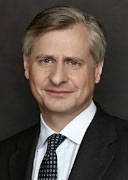- Shopping Bag ( 0 items )
From Barnes & Noble
This new biography by the Pulitzer Prize winning author of American Lion presents Thomas Jefferson as we have never seen him before. Historian Jon Meacham presents him not a democratic theoretician or a slave-owned hypocrite, but as a skillful pragmatist who helped the nation navigate through its first difficult years.





Overview
NAMED ONE OF THE BEST BOOKS OF THE YEAR BY
The New York Times Book Review • The Washington Post • Entertainment Weekly • The Seattle Times • St. Louis Post-Dispatch • Bloomberg Businessweek
In this magnificent biography, the Pulitzer Prize–winning author of American Lion and Franklin and Winston brings vividly to life an extraordinary man and his remarkable times. Thomas Jefferson: The Art of Power gives us Jefferson the politician and ...